Richard Breen on pushing through the pain barrier in 100-mile races and landing a big prize in Connemara
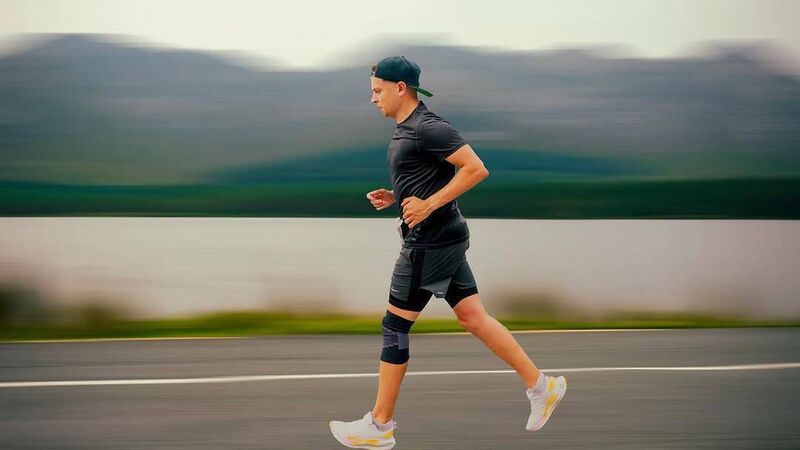
Richard Breen with the mountains in the background during the Connemara 100. The Douglas runner won the race at his first time running at this distance.
Some would call it a form of madness, while others would say there is no better feeling.
But no matter which side you are on to run 100 miles non-stop, bar the off break for food is an achievement that not too many can or would do.
But not alone did Dougla man, Richard Breen, do this recently he also did so in style by winning the Connemara 100.
This is exactly what it says – a non-stop race of 100 miles (160km) in the picturesque area around Connemara.
To take part and finish is well beyond what your average person can do, but to go on and win, in the first time every running this distance, shows the dedication and determination of Richard on the day, but also in the months upon months of training before the event.
But what makes you want to run a race like this and how did it all start?
“I suppose it all started during Covid for me really,” said Richard, “there was nothing else really to do so I decided to start a bit of running to keep fit.
“So I started running during Covid and was running 5-6 days a week. That was it really, and it kind of grew into an addiction from there.
“I remember I was running for like maybe two or three weeks and saying I’m going to run for as long as I can now, like no stopping and I ran for 13 kilometres.
“I was broken up, couldn't move or walk the next day but it was also just mad like to see the progress over time.
“I booked the Cork City Marathon in 2021 of the lads and I was training for that, and it got cancelled. So I went out and ran it anyway, just myself just around here and stuff like and I just caught the bug really.
“I then ran the distance myself maybe seven or eight times but I didn’t do the Cork marathon until this year.”
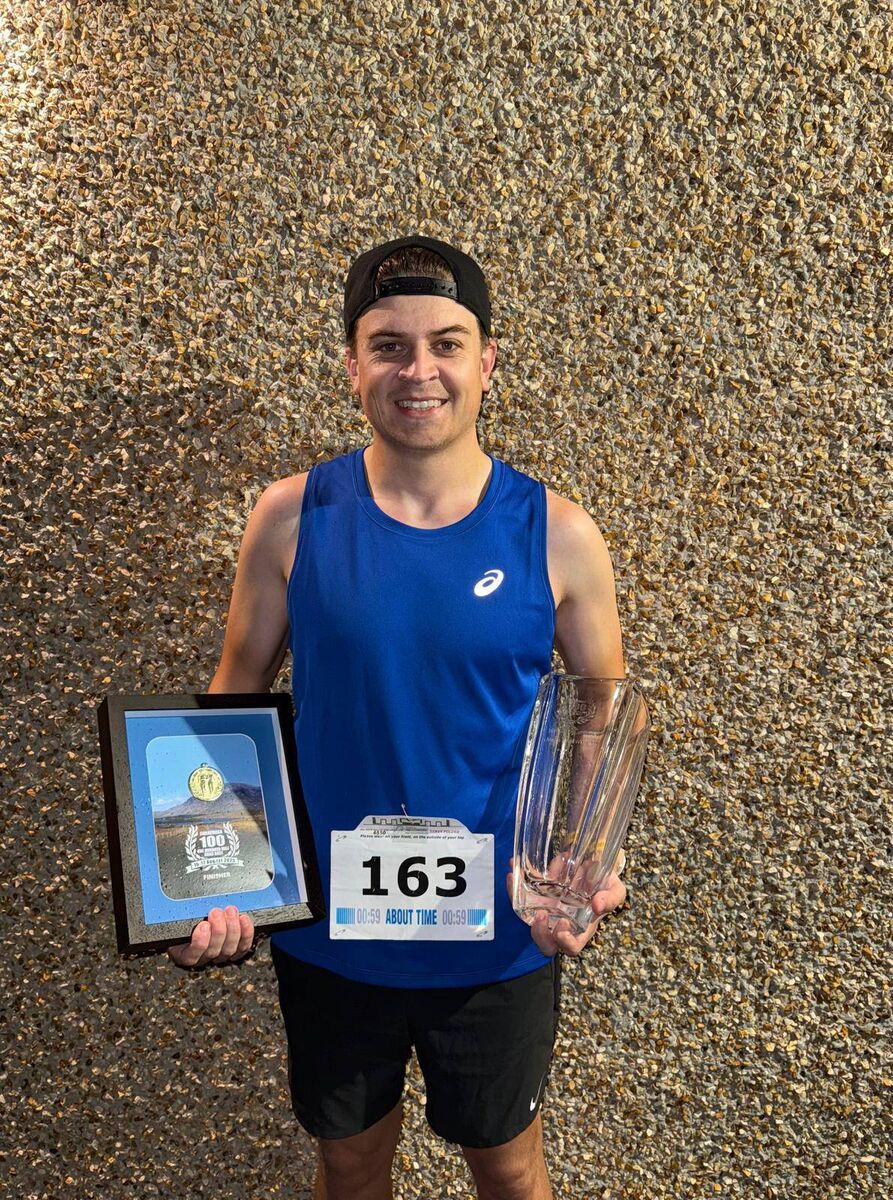
But that was only a short run compared to the first-ever competitive one Richard did.
“I did an 80Km race last year in Westport and that was my first race ever. So doing the marathon wasn’t really scary after that.”
Not too many would agree with Richard’s thought process that running the longer distance is easier, but he says it can be in some ways.
“I knew I wasn’t maybe quick enough to do a marathon so even though it may not seem easier the longer distance is a bit slower so it can be a bit easier to do.
“I remember getting like to 50k in the 80k and was cruising, happy out and then I got to 55-60k and I hit a wall. I was like regretting doing it and was saying just get me off this course and I was never doing this again.
“As soon as I finished, I was like I want to do it again. It was the same with the 100-mile course.
“About 20 miles in my knee went, I like started to panic, like looking at my watch and thinking how am I going to do it?
“I was almost trying to make up an injury so I could drop out, and I was the same saying never again am I doing. Then as soon as I finished I was thinking I wouldn't mind doing it again.”
Mental strength plays a huge part in any race, not to mind one that is 100 miles, something that Richard says you have to be strong in.
“I think I was always kind of sound that way, I feel the body will just work away, it's kind of more in your head these things and you have to be strong.”
At the finish of the 80k race at Westport Richard was delighted to have finished sixth, in his first ever race, but that result paled into significance at the end of the Connemara 100.
“The 80k was a huge learning experience for me, and after it I just wanted to race as much as possible. It thought me not to panic if someone passed me out and just to keep going at my own pace.
“I did a 5k at Christmas and a 10-mile race last November, small races, but it was more for the experience of letting people pass you and getting used to that and not trying to take off after them.
“After that I had a really good training block from January to March. Then I picked up an injury at the start of April so couldn’t run much. I picked it up a small bit in May, again for the marathon and kind of didn't have much confidence going into it. I wanted to run it in three hours, that was my target.
“I ended up running two hours and 46 minutes and finished 22nd so I was delighted with that.”
The next challenge was the 100-mile race (160km) and training for that. He took a few days off after the marathon and then had 10 weeks or so to get ready for his biggest challenge.
His ‘easy’ week after running the marathon meant only running about 50km.
“After that it was then into running about 100km to 120km every week, so you are running about 12 to 15 hours a week on top of going to work, seeing my girlfriend, family and friends.
“I would do a 12-hour shift in work at Ladbrokes and then go out at 10pm at night for a run for three hours, come home have something to eat and then be in bed for 2am or so and get up in the morning and go to work again.
“If you don't do the training, you're not going to succeed. I told everyone about the race so they all knew what my plan was, and I kind of like that pressure on myself, of having to do it after telling everyone I was.
“I had maybe 10 people coming to Connemara with me for the weekend to help out in different ways. They had taken days off work, so I couldn't really afford not to finish.
“That was the goal, to finish it, I never really saw myself winning it. To be honest it was a massive shock when I did.”
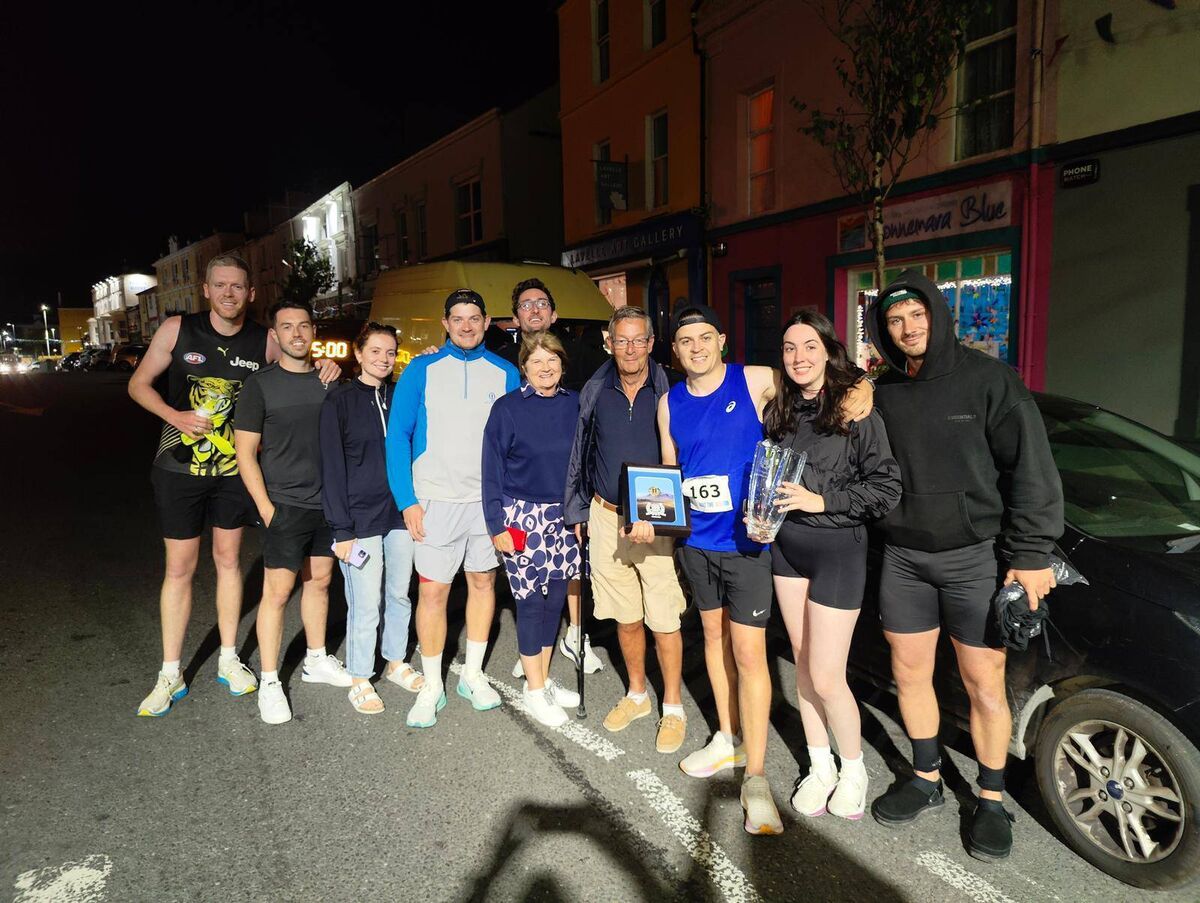
The race starts in Clifton, does a figure of eight course and finished in Clifton as well.
“The race starts at 6am and it was dark and the sun was just starting to come up. I remember being about 15k in, and there was one fella was going way out in front. Then there was me and another fella running about 100 metres apart, and everybody else was behind us at that point.
Like nearly all runners Richard was using his smart watch to keep an eye on his pace, and it would go off every kilometre to tell him how he was going.
“When I hit that wall around 25K in, and the doubts started my heart rate jumped to 195 when it should be at 135. I had to sit down in the boot of my support car for two minutes like and just like take a breath, get some ice and just chill out because I was starting to panic.
“One of lads fell in with me then and ran 20k with me and that calmed me down massively.
“You have to have a crew with you and some of them ran with me at different times so that was a huge help to me, so I had someone with me most of the time.”
As Richard said, like all the others, he started the race at 6am and finished that evening at 11.15pm. You can stop as much as you need for food breaks etc during that time.
“It’s a funny community in some ways and if you wanted to stop and go for a sleep for a few hours you could and I know two of the lads stopped for a Heineken Zero at one point for the craic."
There is a 30-hour cut off but Richard ran it in 17 hours and 15 minutes, of which he was running for 15 hours and 35 minutes. But as well as the ambition of finishing this was a competitive race with one runner travelling from America and he was attempting to beat the course record which was under 14 hours.
“I was running with him and a fella who ran for Ireland on a few occasions, and I think that maybe at the start I was a bit intimidated by them, but I didn’t know they didn’t finish.
“I was leading from about 70k in and only found out when the race director drove past and put up his finger to indicate that I was leading.
“When I was about 130 or 140k in I was getting flashbacks to the 80k race and was looking over my shoulder and see who was coming to pass me.
“I was saying to the lads I had nothing left, that if they pass me I’m done, but thankfully they didn’t. At one stage I was an hour ahead but the crew were saying to me you are only 40 minutes ahead now to keep me on my toes and going.”
Then you come into Clifton and you have to do three laps around the town so you see the finish line four times before you are actually finished, but Richard said that he only relaxed and knew he had it won on the last lap.
So you cross the finish line having run 100 miles or 160km and knowing you have won is a moment you will never forget.
“As soon as I crossed the line I just collapsed, I actually tried to jump when I crossed the line and I thought I had until I looked back at the videos and it's like the tiniest skip.
“I got up then for the ceremonies and made a speech and it was back to the house, and it was torture then.
“I came into the house, and I just lay down on the couch and put my feet in buckets of ice water. I was just icing my knees like icing my whole body really.
“I couldn’t sleep that night, managed about a 10-minute walk the next day, that was all I could do. Then by Monday I was able to walk for maybe half an hour and on the Tuesday went to a physio.
“I had one slight tendon issue, that was it, I got away scott free really. Nutrition was a huge part of that, if you don’t fuel you can’t keep going. Carbs and salt are the biggest thing.
“I would have had 100 carbs an hour and a 500ml bottle of electrolytes every 90 minutes so I would have consumed about 15 litres of water over the race time.”
Having run for that long he was still running 5k in about 27 minutes, a pace that many a normal runner would be happy with. The real question though is why would you put yourself through this metal and physical torture?
“I've been trying myself that and I've asked other lads who do the same, why, what is it.
“I have my mother saying to me you're never doing one of them again because she had to watch. She was watching that game for 17 hours and I was like I'm done.
“But lying there that night, not being able to sleep I was thinking I would love to go again. Even now if I don't go for a run I feel like I haven't showered. I have to get out.”
To show that he is not giving up running soon Richard has already booked his next big race for next March, but that’s only a 50k one in Tralee.
“I think I'm kind of a competitive person and I’m trying to beat my own times when I go out again. I think in running you should only be competing with yourself anyway, trying to do better than the last time you ran.”
When is all calmed down Richard said looking back he was shocked that he had won.
“I was massively shocked, it's kind of a weird feeling as well because when you do other races you get a medal and I would just put them in a drawer.
“But for this your get a big glass vase with Connemara 100 winner on it so it’s class and a medal in a frame that says finisher so it’s something I will always be proud of, even though it’s still hard to believe at times. I am just so proud of it,” concluded Richard.
Richard also said he would like to thank both Soma Hydration for his electrolytes and Altar Nutrition for carbs, who have come on board to sponsor him.
He would also like to thank his family, girlfriend and friends who helped him out on the day of the race.
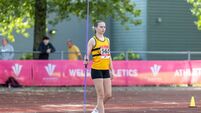

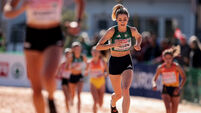

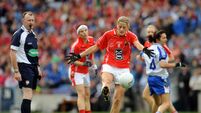
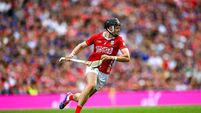
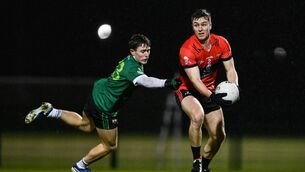



 App?
App?







